When it comes to home decor, there are always new trends emerging that can transform your space into a stylish sanctuary.
Whether you’re looking to update your living room, bedroom, or kitchen, staying on top of the latest home decor trends can help you create a space that feels fresh and modern.
From contemporary design elements to modern color palettes, keeping up with the ever-evolving world of home decor is essential for those looking to create a stylish and welcoming space in their home.
In this article, we’ll explore 17 top trends in home decor that can elevate your space to the next level.
From bold statement pieces to subtle design details, these trends are shaping the way we think about interior design.
So, whether you’re planning a major renovation or simply looking to refresh a few key elements in your home, let’s dive into the top trends in home decor that are sure to inspire you.
Key Takeaways:
- Stay up to date with the latest home decor trends to create a stylish space.
- Contemporary and modern design elements can give your home a fresh and modern look.
- Pay attention to color palettes and select colors that reflect your personal style.
- Experiment with bold statement pieces and subtle design details to create an interesting and unique space.
- Remember to choose trends that resonate with your personal style and create a space that you love.
Neon Signs As Art
Neon signs have become a popular trend in home decor, adding a vibrant and eye-catching element to various spaces. From trendy cafes and restaurants to stylish living rooms, these illuminated signs have made their mark. However, some designers believe that neon signs as art have reached a saturation point and are ready to fade away. They long for something new and fresh in the realm of artistic expressions.
While neon signs can undoubtedly create a bold and visually striking ambiance, their overuse can diminish their impact. Just like any trend, the excitement surrounding neon signs as art can wane over time, leading to a desire for novel artistic choices. Designers are now exploring alternative ideas to bring uniqueness and personality into spaces.
Unconventional artwork, such as digital prints, abstract paintings, or even customized installations, are gaining attention as alternatives to neon signs. These forms of artistic expressions offer a fresh perspective and allow for greater creativity in space design.
As trends continue to evolve, it’s essential to stay open to new artistic possibilities and adapt to changing design aesthetics. While neon signs have had their moment in the spotlight, designers are now seeking innovative ways to captivate and inspire through art. So, what’s next? Only time will tell.
The Lifeless Airport-Lounge Look
When it comes to design trends in airports, the airport-lounge look is one that some designers are not fond of. They perceive it as lacking in personality and character, with a faceless ambiance that fails to provide a sense of place. This design trend, often associated with soulless and airless aesthetics, leaves little room for individuality and creativity.
While airport lounges are designed to prioritize functionality and efficiency, some argue that they have become too standardized and generic, losing the opportunity to showcase innovative and captivating design elements. The cookie-cutter approach to airport design neglects the potential for creating unique and memorable spaces that reflect the local culture, history, or natural surroundings.
In an era where airports are increasingly becoming gateways to new experiences and destinations, many believe that design should play a pivotal role in shaping the traveler’s journey. By embracing design trends that break away from the lifeless airport-lounge look, airports can create spaces that inspire and captivate travelers, making their travel experience more enriching and enjoyable.

The Importance of Design Trends in Airports
“Airports serve as the first and last impressions of a city or country for many travelers. By infusing airports with unique design elements, we have the power to create lasting positive memories and make travel a more memorable experience.” – John Anderson, Design Consultant
Design trends in airports can transform these travel hubs into destinations in themselves. By incorporating local art installations, indigenous materials, lush greenery, and interactive technologies, airports can create a sense of excitement and wonder. These elements not only enhance the aesthetics of the space but also contribute to a more enjoyable and immersive travel experience.
Creating Spaces with Personality and Character
Designers advocate for airports to break free from the soulless airport-lounge look and embrace design trends that infuse spaces with personality and character. By incorporating unique architectural features, locally-inspired artwork, and comfortable lounge areas, airports can create a more welcoming and inviting atmosphere for weary travelers.
| Design Element | Benefits |
|---|---|
| Unique architectural features | Creates a sense of identity and place |
| Locally-inspired artwork | Highlights the cultural heritage and identity of the region |
| Comfortable lounge areas | Provides a relaxing space for travelers to unwind |
The integration of local design elements celebrates the uniqueness of each destination, fostering a genuine connection between travelers and the places they visit. This approach not only enhances the visual appeal of airports but also showcases the rich diversity of cultures and traditions across the globe.
A New Era in Airport Design
As airports increasingly become more than just transit points, the design community is starting to recognize the value of innovative and captivating design trends in shaping travelers’ experiences. Moving away from the soulless airport-lounge look opens up a world of possibilities for creating memorable spaces that reflect the essence of a destination.
By embracing design trends that prioritize personality, character, and a sense of place, airports can transform into vibrant and engaging destinations. From immersive art installations to sustainable design practices, airports have the opportunity to redefine the travel experience and leave a lasting impression on those passing through their gates.
Macramé
Macramé, a popular design trend in recent years, has found its place in the heart of Brooklyn’s design scene. This age-old textile technique involves creating intricate patterns using knotting techniques, resulting in unique and eye-catching pieces.
However, some designers have started to view the macramé trend as overly saturated and lacking originality. The once-unique craft has now become a common sight in many interiors, leading to what some designers refer to as the “army-of-sameness” aesthetic.
While macramé can still be incorporated tastefully into interior design, the challenge lies in avoiding overuse and finding innovative ways to showcase this trendy craft. Designers are seeking fresh and trendy macramé designs that go beyond the typical wall hangings and plant hangers, bringing a contemporary twist to this traditional art form.
If you’re considering incorporating macramé into your space, think beyond the conventional and explore unique macramé applications. From intricate macramé room dividers to contemporary macramé light fixtures, there are plenty of trendy macramé designs to explore and elevate your interior.
“Macramé has become so prevalent that it’s now lost its uniqueness. To keep up with the evolving design landscape, we need to find new and exciting ways to incorporate this craft, pushing boundaries and breaking free from the ‘army-of-sameness’ aesthetic.”
New and Trendy Macramé Designs
To help inspire your creativity, here are some unique and trendy macramé designs you can consider:
- Macramé hanging chairs or swings
- Macramé statement lighting fixtures
- Macramé room dividers
- Macramé wall art with a modern twist
- Macramé table runners or placemats
By exploring these innovative macramé designs and bringing a contemporary touch to your space, you can transform this popular trend into a fresh and distinctive element of your interior design.
| Pros | Cons |
|---|---|
| Adds texture and visual interest to interiors | Can become overly trendy and lose its uniqueness |
| Offers a wide range of design possibilities | Requires careful integration to avoid an excessive use of the trend |
| Provides a handmade and artisanal feel to spaces | May not suit every design style |
| Can be a DIY-friendly craft for those who enjoy crafting | May require proper maintenance and cleaning |
Decor That Isn’t What It Seems
When it comes to home decor, authenticity and originality hold great value. Some designers express their distaste for the use of fake versions of furniture and decor items. This includes imitation designs that replicate famous and iconic pieces, such as the Bellini sofa, as well as porcelain tiles that mimic the appearance of wood or other materials.
The trend of fake decor is one that some designers believe should be avoided. They argue that the use of imitations detracts from the uniqueness and character of a space. Instead, they advocate for embracing genuine designs and seeking out original pieces that reflect your personal style.
“The beauty of home decor lies in its authenticity. Using fake decor not only diminishes the integrity of the design, but it also creates a sense of inauthenticity. I always encourage my clients to opt for genuine and original designs that truly speak to them.”
– Anna Thompson, Interior Designer
Imitation Designs: A Lack of Originality
One of the key design trends to avoid, according to these designers, is the use of imitation designs. While it may be tempting to replicate the look of a famous piece at a lower cost, it ultimately compromises the integrity of the space and creates a sense of imitation rather than innovation.
Imitation furniture and decor often lack the quality and craftsmanship of the original designs they seek to imitate. They can also contribute to a sense of sameness and lack of personal expression in a room. Instead, designers recommend exploring unique and lesser-known designers, as well as custom or one-of-a-kind pieces, to create a space that truly reflects your individual style.
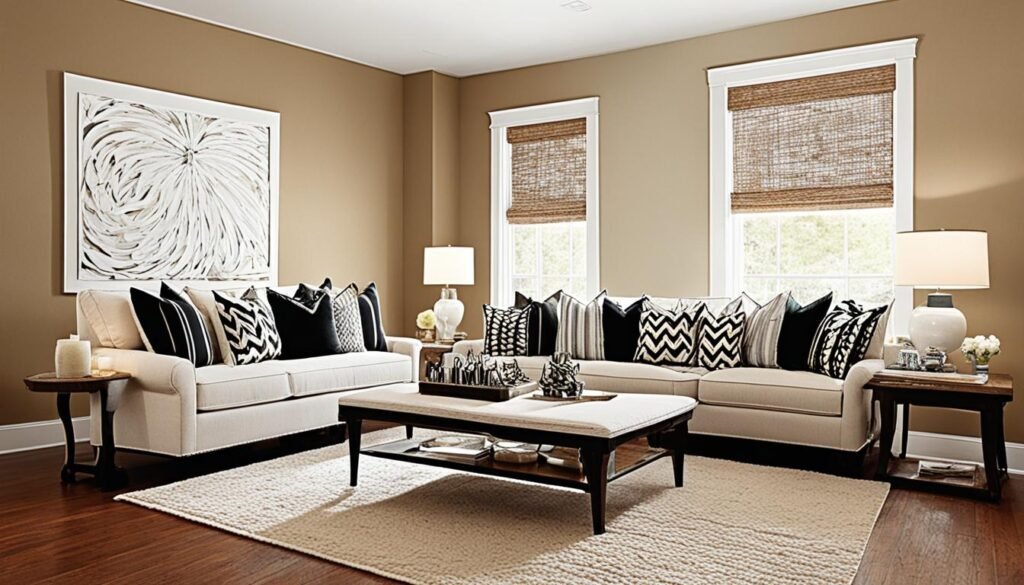
It’s important to remember that home decor should be a reflection of your personality and taste. By avoiding fake decor and instead embracing authentic designs, you can create a space that is truly unique and meaningful.
Chenille
Chenille, a fabric that has been popular in home decor, is receiving mixed reviews from designers. While some appreciate its cozy and textured appearance, others dislike its overall aesthetic. Chenille has a distinct texture that doesn’t resonate with everyone and can be perceived as outdated by those who favor more modern design trends.
If you have a dislike for chenille or prefer a different fabric for your home decor, there are plenty of alternative options to explore. From luxurious velvet to durable microfiber, the fabric choices available enable you to create a space that aligns with your design preferences and suits your lifestyle.
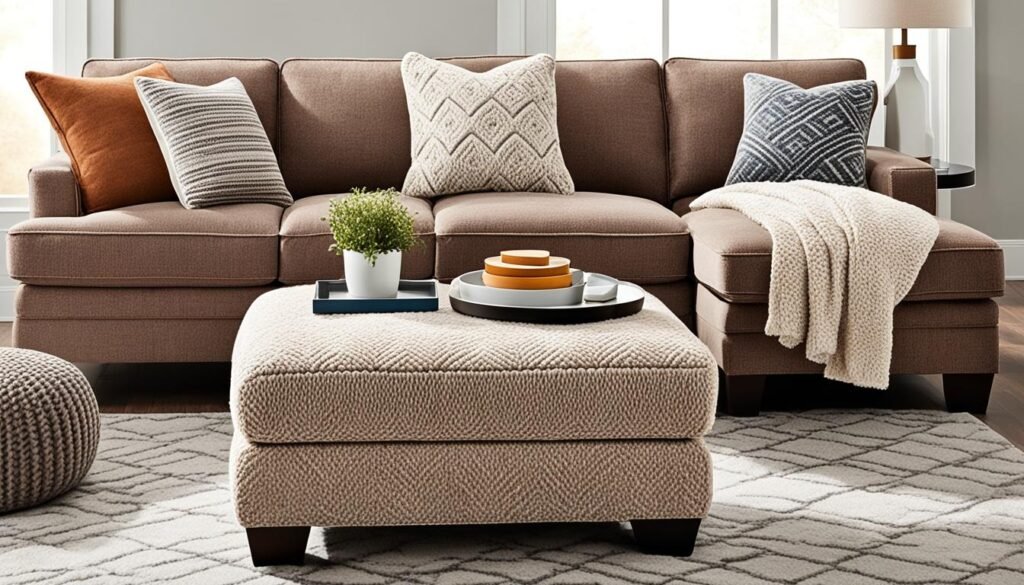
If you’re curious about the fabric trends in home decor that are emerging as alternatives to chenille, consider the following:
- Velvet: Known for its softness and luxurious look, velvet is a versatile fabric that adds an elegant touch to any space.
- Linen: Perfect for creating a relaxed and airy atmosphere, linen is a natural fabric that adds a sense of freshness to your home decor.
- Cotton: A timeless and durable choice, cotton offers a wide range of options and can be designed to fit any style, from contemporary to bohemian.
- Microfiber: If you’re seeking a fabric that is easy to maintain and resistant to stains, microfiber is an excellent choice. It provides a practical and stylish solution for high-traffic areas.
By exploring these fabric trends and choosing the one that aligns with your personal style and preferences, you can create a harmonious and inviting atmosphere in your home. Remember, home decor is a reflection of your unique personality, so don’t hesitate to experiment with different fabrics and textures until you find your perfect fit.
Matchy-Matchy Furniture
Coordinated furniture sets, also known as matchy-matchy furniture, are seen as a design trend to avoid. Some designers believe that the beauty of an interior space lies in the accumulation of different pieces that complement each other rather than matching exactly. This approach adds a personal touch to the space and prevents it from appearing dated.
When it comes to designing your home, it’s important to create a space that reflects your unique style and personality. While coordinated furniture sets might seem like a convenient option, they can often result in a generic and uninspiring look. Instead of opting for ready-made sets, consider mixing and matching furniture pieces that have complementary styles, colors, and textures.
By doing so, you can create a personalized interior design that showcases your individual taste and preferences. This approach allows you to curate a space that is truly one-of-a-kind and reflects your personality and lifestyle. Whether you prefer a modern, eclectic, or traditional style, mixing different furniture pieces can bring depth and visual interest to your home.
When selecting furniture pieces, think about the overall theme and mood you want to achieve in each room. Pay attention to details such as color palettes, materials, and patterns to ensure harmony and cohesion. By carefully curating your furniture collection, you can create a space that is both stylish and unique.
To illustrate the impact of mixing and matching furniture, take a look at the example below:
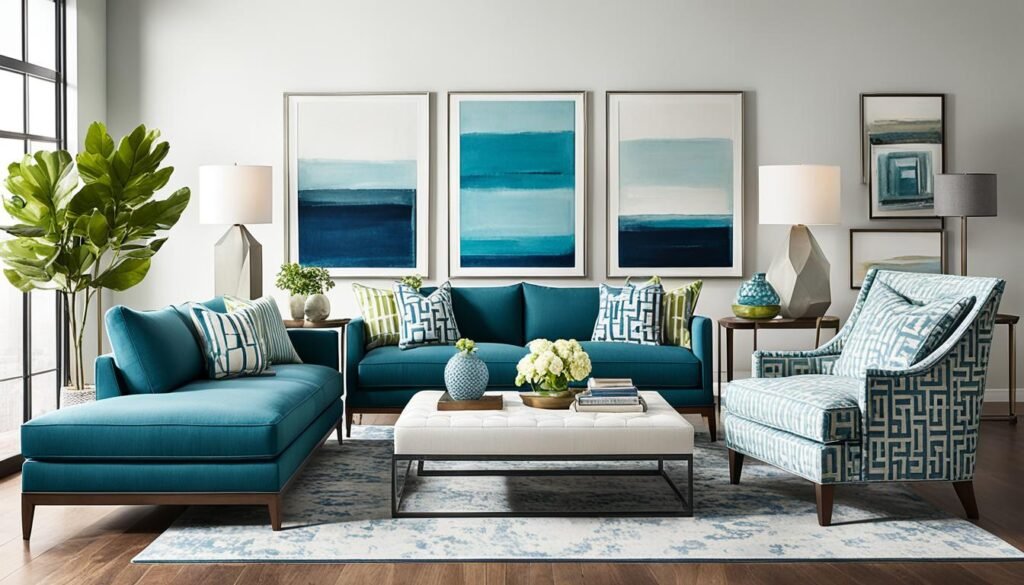
| Before | After |
|---|---|
|
|
As you can see, the “before” photo with coordinated furniture sets creates a predictable and uninspiring look. In contrast, the “after” photo showcases a more personalized and visually appealing interior design. The different furniture pieces work together harmoniously, adding character and charm to the space.
When it comes to creating a stylish and personalized interior design, don’t be afraid to think outside the box and mix and match furniture pieces. This approach allows you to create a space that truly reflects your individual style and preferences. Say goodbye to matchy-matchy furniture and embrace a more unique and personalized approach to home decor.
Subway-Tile Backsplashes
Subway-tile backsplashes have been a popular design trend in kitchens for quite some time. Their timeless look and versatile nature have made them a go-to choice for many homeowners. However, some designers are starting to feel that subway-tile backsplashes have become overused and lacking in originality.
If you’re looking to add a touch of uniqueness to your kitchen design, it may be time to explore alternative options for your backsplash. Consider experimenting with different tile shapes, patterns, or materials to create a standout focal point in your kitchen.
Additionally, don’t underestimate the impact that cabinet hardware can have on your kitchen’s overall aesthetic. While IKEA brass handles have also been a popular choice, they have become somewhat ubiquitous. If you’re seeking a fresh and distinctive look, explore other finishes and styles that can elevate the design of your kitchen cabinets.
Here are some alternative backsplash materials and cabinet handle options to consider:
| Backsplash Materials | Cabinet Handle Options |
|---|---|
| 1. Glass tiles | 1. Matte black handles |
| 2. Mosaic tiles | 2. Brushed nickel handles |
| 3. Porcelain tiles with unique patterns | 3. Antique brass handles |
| 4. Natural stone tiles | 4. Ceramic handles with hand-painted designs |
By considering these alternative options, you can infuse your kitchen with a fresh and modern design that reflects your personal style. Remember, a well-designed kitchen is not just about following the latest trends but also about creating a space that is both functional and aesthetically pleasing.
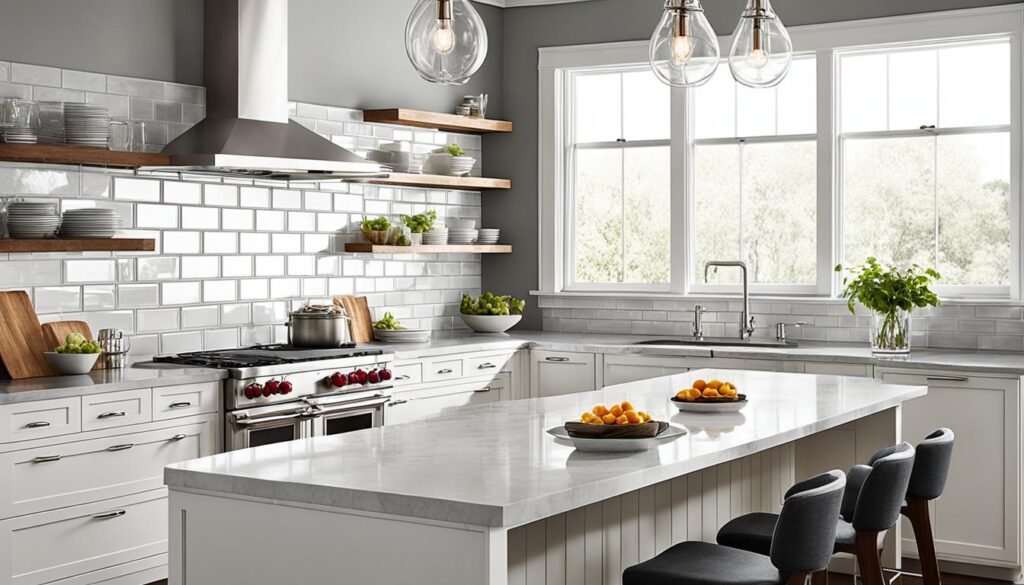
Fast Furniture
Fast furniture, which refers to inexpensive and often low-quality furniture that is mass-produced, is a trend that some designers want to move away from. They believe in being more conscious about materials and waste in home decor. Instead, they encourage the use of secondhand items and creative repurposing to create unique and sustainable pieces for the home.
| Pros of Fast Furniture | Cons of Fast Furniture |
|---|---|
| – Affordable – Easy to find – Wide variety of styles and options |
– Lower quality – Limited lifespan – Contributes to waste |
| While fast furniture may have its advantages in terms of affordability and accessibility, it often lacks durability and sustainability. This leads to a cycle of buying and disposing, contributing to environmental issues. | |
|
|
The Power of Secondhand Items
Exploring the world of secondhand furniture can be an exciting and rewarding experience. It not only allows you to find hidden gems at affordable prices but also promotes eco-friendly design practices. By giving pre-loved items a new lease on life, you can add character and charm to your home while reducing waste. Here are some reasons to embrace secondhand items:
- Unique: Secondhand furniture often has unique designs and details that add personality to your space.
- Quality: Vintage or antique furniture is often built to last, offering better quality and craftsmanship compared to mass-produced fast furniture.
- Sustainability: Opting for secondhand items reduces the demand for new furniture production, minimizing the environmental impact.
- Cost-effective: Buying secondhand furniture can save you money compared to purchasing new items.
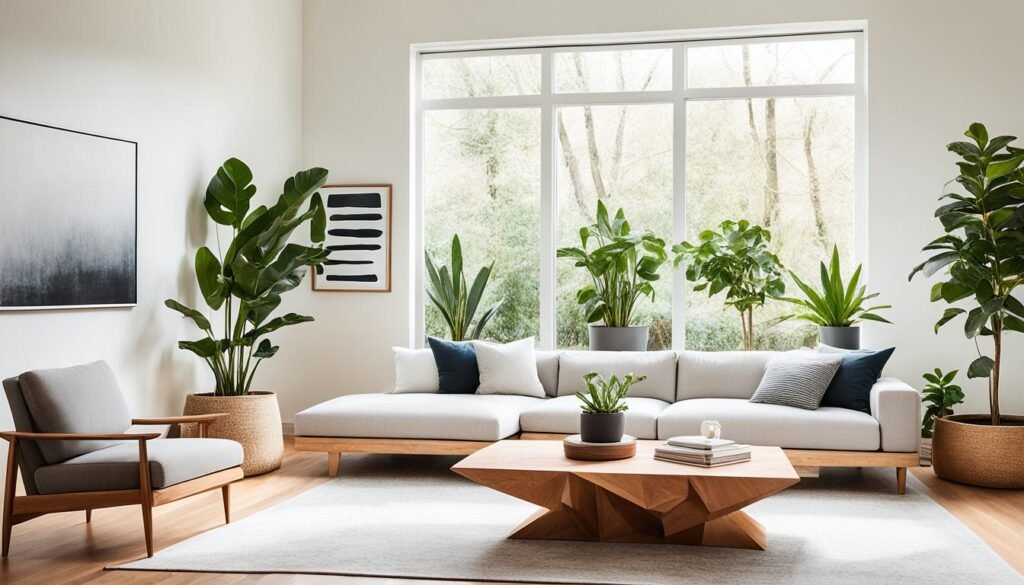
By incorporating secondhand items into your home, you can create a unique and sustainable living environment. Embrace the beauty of vintage and pre-owned furniture, and let your home tell a story.
Conclusion
Design trends in home decor are constantly evolving, and it’s important to stay updated with the latest styles to create a stylish and personalized space. The 17 designers we consulted have different opinions on which trends should fade away forever, highlighting the subjective nature of design preferences. However, there are a few trends that many agree should be left behind.
Neon signs as art, once a popular trend, have become overdone and lack originality. The lifeless airport-lounge look is also disliked by designers for its lack of personality and character. Macramé, although trendy in recent years, is now seen as a design trend that has lost its uniqueness. Chenille, with its outdated texture, is a fabric that some designers want to move away from. Matchy-matchy furniture sets and subway-tile backsplashes are also trends that designers are growing tired of due to their overuse.
As trends come and go, it’s important to embrace evolving design styles that align with your personal taste and create a space that reflects your individuality. Explore new ideas and find inspiration from various sources to design a home that is unique and timeless. Whether you prefer contemporary, modern, or traditional styles, the key is to choose elements that speak to you and create a space where you can truly feel at home.
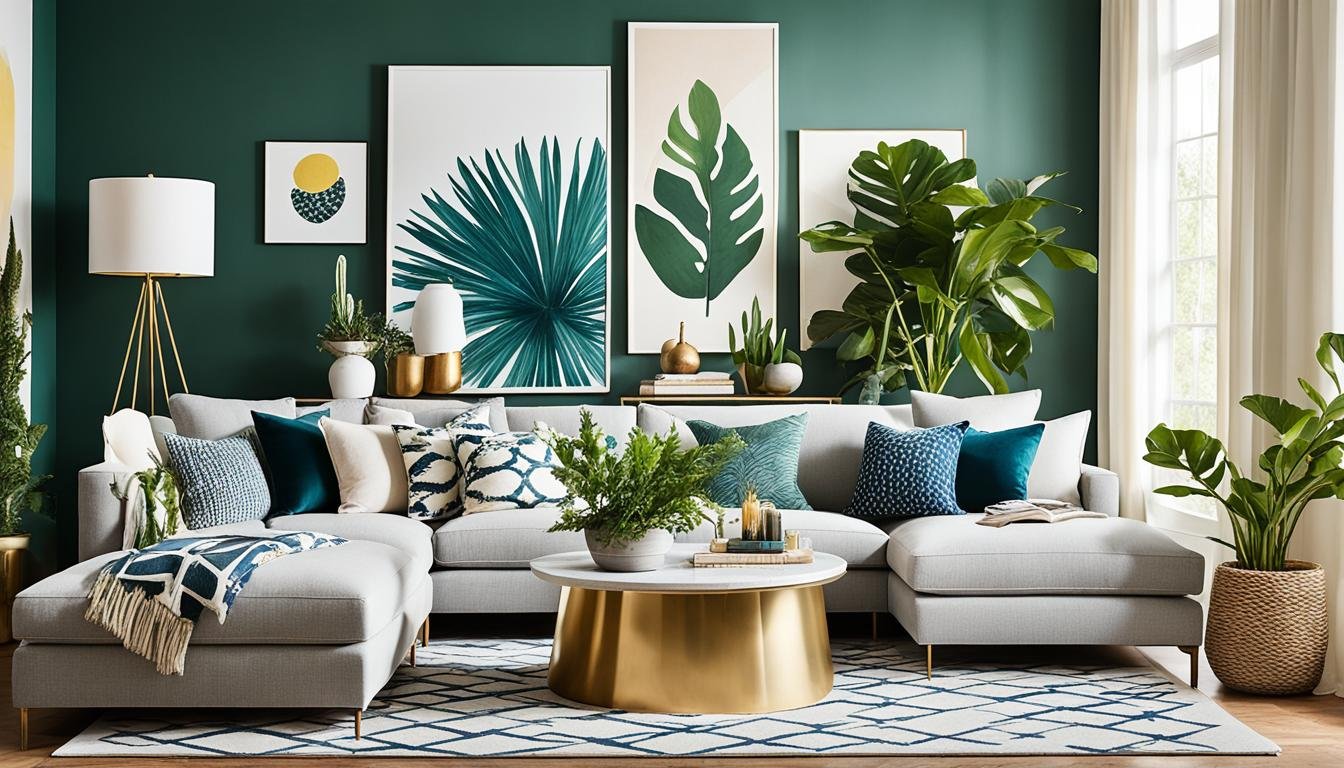
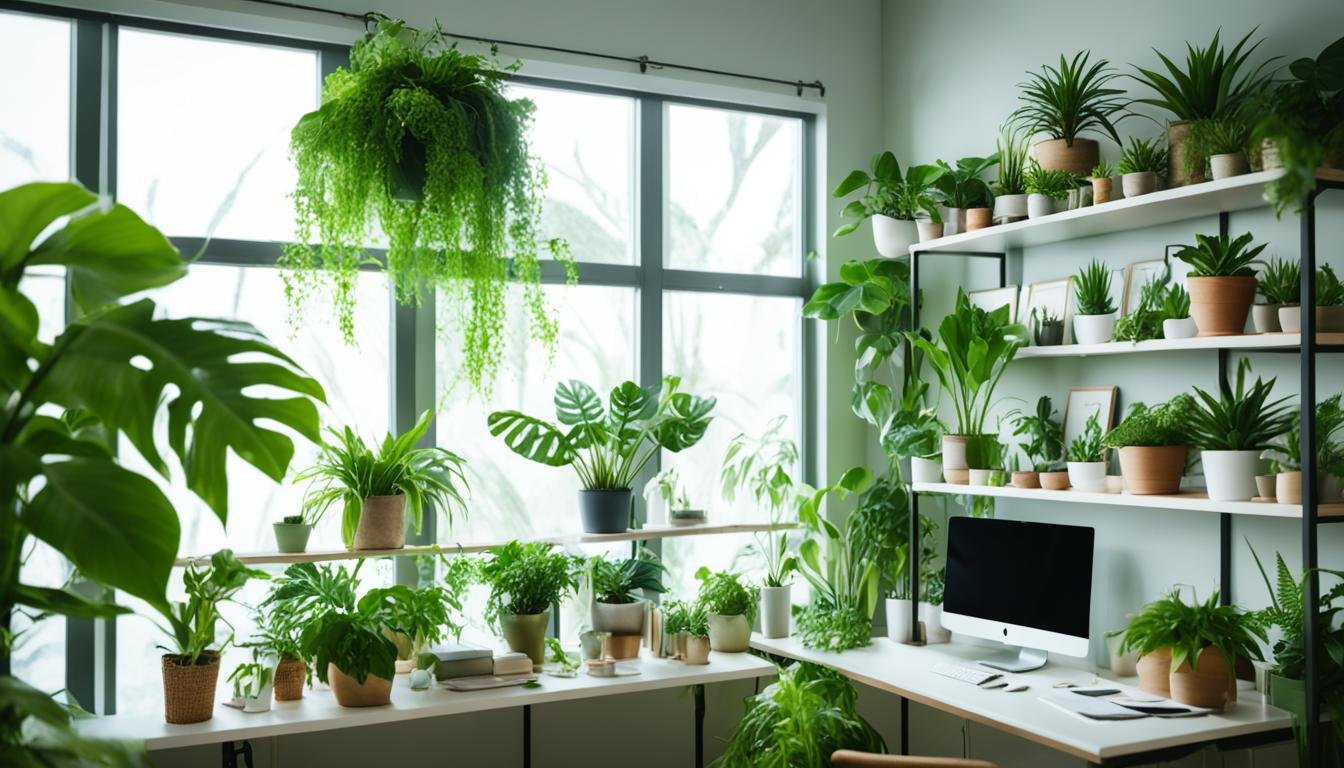
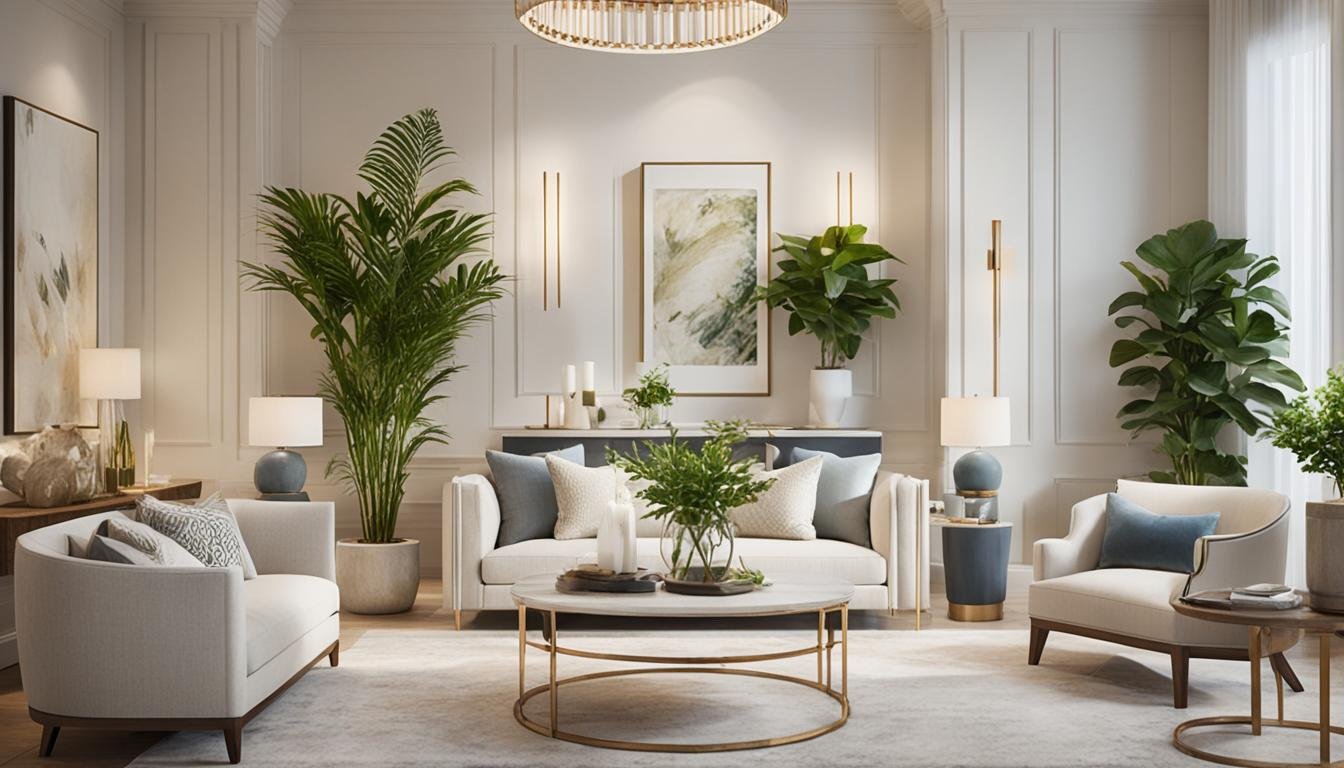
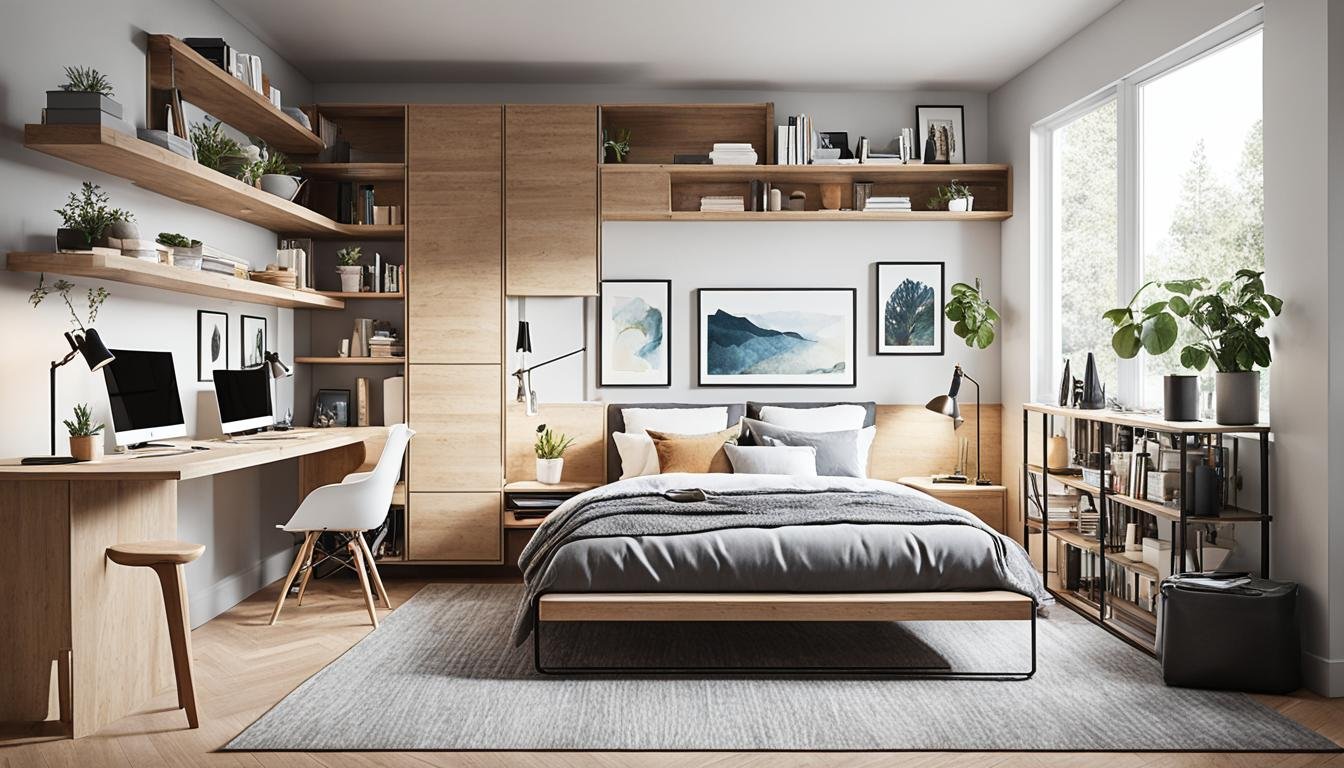
Leave a Reply